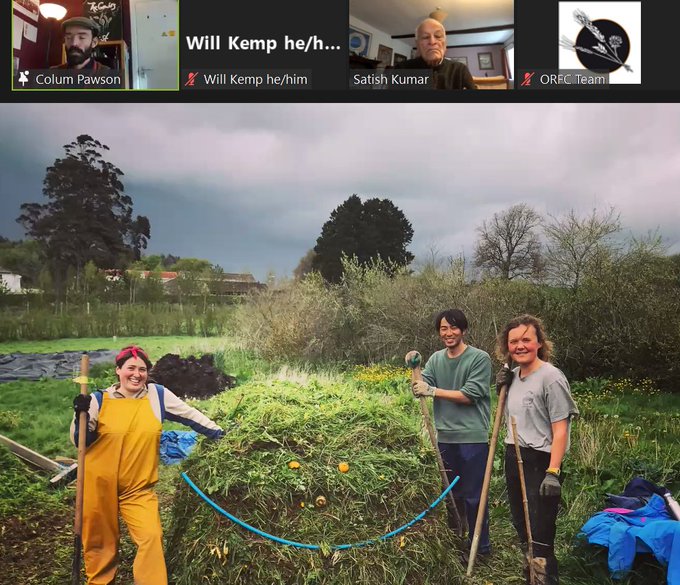
In his opening keynote session with Vandana Shiva, Satish Kumar made the point that “we need to remember that uniformity is not unity. We have got monocultures and uniformity, and we don’t remember local conditions. We need to embrace diversity, and unity dances with diversity.” This set the tone for the event which brought together so many perspectives – over 500 speakers – exploring with real nuance themes such as land justice, food sovereignty, food systems at national and regional levels, as well as more specific issues, and intense debate on the many local solutions to the global problems we have been observing for some time now.
As Vandana Shiva said in the same session, “eating is an ecological act” and it is high time to “support farming of the kind that supports the planet and people’s health”. We can do this by looking at what we do ourselves, of course. And it was great to see many conversations on the ecological approaches that we have been exploring here at Dartington – the role agroforestry can play, avoiding pesticides and chemical fertilisers, growing together to feed our community and with the help of local partnerships, more accessible training and education relating to these initiatives, and in general fostering respect for the natural world around us – something which can, as many have observed, benefit rather than hinder the commercial yields of growing spaces.

Asked how he found the experience of attending this year’s conference Satish said: “Like a great river is made of many small tributaries, the great movement of genuine farmers is made of many small, dedicated growers. People working in the field of agro-ecology, organic agriculture, regenerative agriculture, permaculture, biodynamic farming, seed savers and many other groups came together under the umbrella of ORFC. It was inspiring and encouraging to see so many real farmers coming together. And it was wonderful that Schumacher College and Dartington was a part of it.”
The importance of focussing on localised approaches through listening to the specific conditions and situations of the land, referred to by Satish, was mirrored by many sessions exploring specific issues. Our Regenerative Farming lecturer, Nathan Einbinder, took part in some amazing sessions including one with Alfredo Cortez from Guatemala and Gerald Miles from Wales, discussing Indigenous perspectives of wellbeing and agriculture and how these have developed independently but all have reciprocity, connection to mother earth, and ancestral values in common. He was also joined by colleagues at Oxford University and more Guatemalan partners talking about Indigenous soil management.
In each case, the idea of dignity and respect for farmers ran through the discussions. It is this concept that we hope to take forward into the new year as we launch our MSc Regenerative Food and Farming this week, and later in the year with our undergraduate course in the same subject starting in September. Aside from the techniques, the practical how-tos and the dos and don’ts, all crucial to effective agro-ecological farming, we hope to bring to our students and our wider community here at Dartington, the sense referred to by Satish that “the field is our church, the forest our cathedral” and that by learning together to grow food in an ecological way, we are showing our love for each other, for the soil that feeds us, and for the whole of the natural world.
Find out more about our farming and horticulture programmes at Schumacher College via the buttons below.
